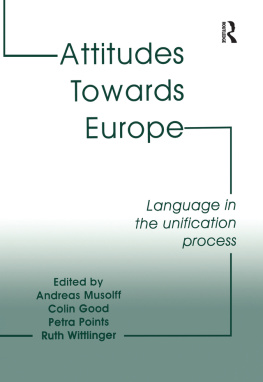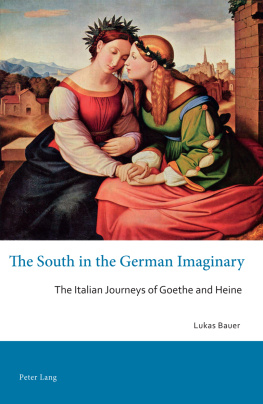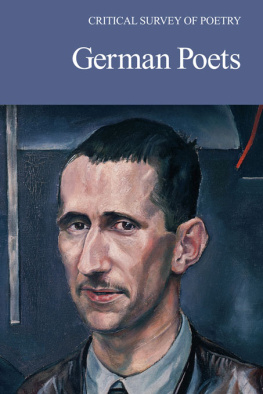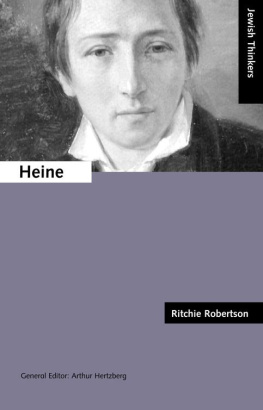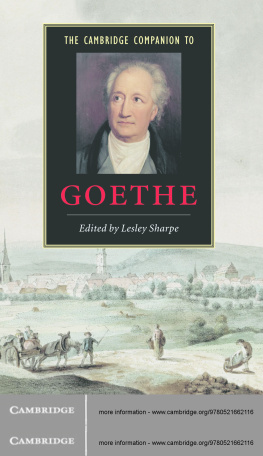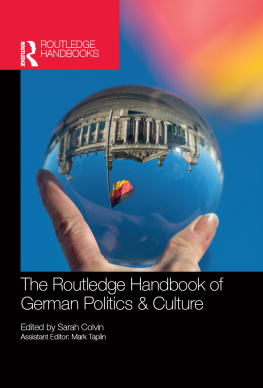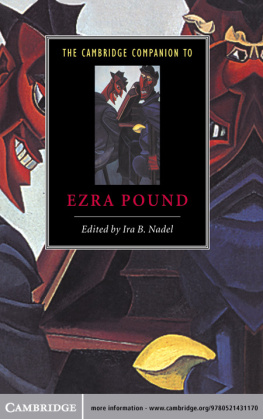About the Author
Ute Berns is professor of English literature at the University of Hamburg. She has previously held positions at the Technical and the Free University of Berlin, where she also received her Ph.D. and participated in the interdisciplinary research project Cultures of Performance. Her recent publications include The Ashgate Research Companion to Thomas Lovell Beddoes (co-edited with Michael Bradshaw, 2007), the edited collection Solo Performances: Staging the Early Modern Self (2010), and the special issue on Medievalism in The European Journal of English Studies, (co-edited with Andrew James Johnston, 2011). Her current interests are in British and German political and scientific discourses from 1780 to 1850, in historical constructions of subjectivity in Romanticism and in the twentieth century, as well as in Early Modern discourses of interiority and science.
Acknowledgments
In the long course of writing this book I have incurred greater debts than can be covered here. My first and foremost thanks go to Manfred Pfister, who brought the work of Thomas Lovell Beddoes to my attention and has provided unfailing encouragement. I benefited as much from his comments on different stages of my work as from his expertise in Early Modern studies and issues of performativity. He also invited me to join the Collaborative Research Centre Cultures of Performances (SonderforschungsbereichKulturen des Performativen) at the Free University of Berlin.
Frederick Burwicks unwavering insistence on the importance of the German context of Beddoess work, and his enthusiastic response to my first ideas on Beddoes and Blumenbach decisively affected the shape of this book. And I greatly enjoyed exchanging thoughts with Michael Bradshaw while we co-edited the Ashgate Research Companion to Thomas Lovell Beddoes (2007) and beyond. Further correspondence and exchange on Beddoes and Romanticism, providing inspirations large and small, must here remain unspecifiedI thank, in alphabetical order, David M. Baulch, Jeffrey Cox, Raphael Hrmann, Diane Hoeveler, Verena Lobsien, Christopher Moylan, Jutta Mller-Tamm, Michael ONeill, Marjean D. Purinton, Shelley Rees, Nicholas Roe and Susan Wolfson. Christoph Bode, Wilhelm Fger, and two anonymous readers from Delaware University Press offered valuable comments on the manuscript.
Jerome McGann and Charles E. Robinson provided most generous advice and help that guided the text to its publisher. And I am indebted to Karen Druliner at University of Delaware Press for her support. Frank Gertich and Wiebke Beushausen diligently prepared the manuscript for printing. Thanks must also go to the Thomas Lovell Beddoes Society.
Another generous supporter of my work is Kuno Schuhmann. He provided warm encouragements when this project was still in its infancy. I also wish to thank Renate Brosch, Ralf Hertel, Dorothea Lbbermann, Susanne Rupp, and Ulrike Stamm for their sincere interest and for acts of kindness too manifold to enumerate here; Lilly Axster shaped critical perceptions in this study in ways she will hardly be aware of. Yet the largest single debt I owe is to Andrew James Johnston whoas scholar, reader and friendhas generously bestowed invaluable care and comments on all stages of this book.
I was fortunate in that my parents gave me their unfailing support, not least as readers of individual chapters, and my sister could always be counted on. Holmer Steinfath has been a perceptive and inspiring interlocutor throughout and guided me through the different editions and translations of Aristotles work. Without Holmers support and sense of fairness in family matters this study could not have been completed. I dedicate the book to him and to our son Arthur.
A version of chapter nine previously appeared in Poetica 38, 12 (2006): 137165 and is here reprinted with permission; the same holds for a section from my article in the The Ashgate Research Companion to Thomas Lovell Beddoes (2007), 135152, now part of chapter eleven. The cover illustration Death and the Bridegroom is taken from Werner Y. Mller, Der Luzerner Totentanz von Jakob von Wyl, Zrich 1942, Morgarten. Tafel 10.
Bibliography
sop. The Complete Fables. Translated by Olivia and Robert Temple. Harmondsworth, UK: Penguin, 1998.
Albury, William Randall. Ideas of Life and Death. In Companion Encyclopedia of the History of Medicine, edited by W. F. Bynum and Roy Porter. 2 vols. Vol. 1, 24981. London, UK and New York, NY: Routledge, 1993.
Allard, James Robert. Romanticism, Medicine, and the Poets Body, Aldershot and Burlington, UK: Ashgate 2007.
Aris, Philippe. The Hour of Our Death, trans. Helen Weaver (New York, NY: Knopf 1981).
Aristotle. Magna Moralia, trans. St. G. Stock, The Complete Works of Aristotle. The revised Oxford translation. Edited by Jonathan Barnes. 2 vols. Princeton, NJ: Princeton University Press, 1984.
. Nicomachean Ethics. Translated and with an Introduction by Terence Irwin. Cambridge, UK and Indianapolis, IN: Hackett, 1985.
Ashbery, John. Olives and Anchovies: The Poetry of Thomas Lovell Beddoes. In Other Traditions, 2344. Cambridge, MA and London, UK: Harvard University Press, 2000.
Assmann, Aleida. Fund aus der Urzeit: Bilder als Speicher des Unbewuten in Dis-kursen der Romantik. In: Erinnern und Vergessen in der Europischen Romantik, edited by Gnter Oesterle, 14558. Wrzburg, DE: Knigshausen & Neumann, 2001.
Auden, Wystan Hugh. The Princes Dog. In The Dyers Hand and other Essays, 182208. New York, NY: Random House, 1962.
Aufenanger, Jrg. Das Lachen der Verzweiflung: Grabbe. Ein Leben. Frankfurt am Main, DE: Fischer, 2001.
Baillie, Joanna. Plays on the Passions. Edited by Peter Duthie. Peterborough and Letchworth, ON: Broadview, 2001.
Bainbridge, Simon. Napoleon and English Romanticism. Cambridge, UK: Cambridge University Press, 1995.
Bal, Mieke. Reading Rembrand: Beyond the Word-Image Opposition. Cambridge, UK: Cambridge University Press, 1991.
. Visual Narrativity. In Routledge Encyclopedia of Narrative Theory, edited by David Herman, Manfred Jahn and Marie-Laure Ryan, 62933. London, UK and New York, NY: Routledge, 2005.
Barley, Nigel. Dancing on the Grave: Encounters with Death. London, UK: Murrey, 1995.
Barrell, John. Imagining the Kings Death: Figurative Treason, Fantasies of Regicide17931796. Oxford, UK: Oxford University Press, 2000.
Barr Nisbet, Hugh. Naturgeschichte und Humangeschichte bei Goethe, Herder und Kant. In Goethe und die Verzeitlichung der Natur, edited by Peter Matussek, 1544. Munich, DE: Beck, 1998.
Baulch, David. Death and his Sweetheart: Revolution and the Paradox of the Real in Deaths Jest-Book. In The Ashgate Research Companion to Thomas LovellBeddoes, edited by Ute Berns and Michael Bradshaw, 4966. Aldershot and Burlington, UK: Ashgate, 2007.
Beddoes, Thomas. Alexanders Expedition down the Hydaspes & the Indus to theIndian Ocean. London, UK: J. Murray and James Phillips, 1792.
Beddoes, Thomas Lovell. Deaths Jest-Book; or, The Day will Come. Edited by Alan Halsey. Sheffield, UK: West House, 2003.
. Deaths Jest-Book: The 1829 text. Edited by Michael Bradshaw. Manchester, UK and New York, NY: Carcanet and Routledge, 2003.
. The Letters of Thomas Lovell Beddoes. Edited by Edmund Gosse. London, UK: Elkin Matthews & John Lane, 1894.
. The Poems of Thomas Lovell Beddoes. Edited by Ramsay Colles. The Muses Library. London, UK: Routledge, 1907.
. The Works of Thomas Lovell Beddoes. Edited by Henry Wolfgang Donner. London, UK: Oxford University Press, 1935. Reprint, New York, NY: AMS Press, 1978.


